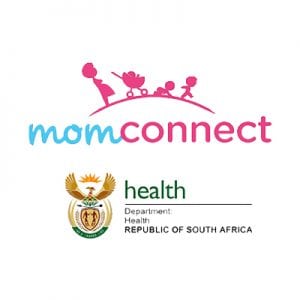
Agriculture
June 8, 2024
MomConnect
Read SolutionImplemented by
Reach Digital Health
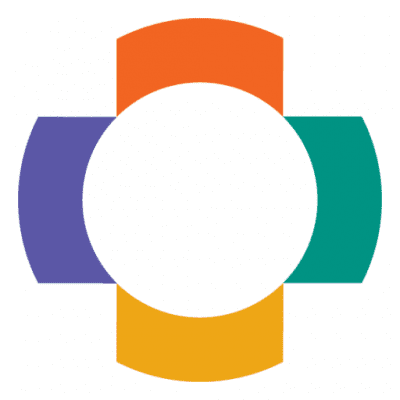
Updated on June 7, 2024
·Created on August 6, 2016
OpenMRS (Open Medical Record Solution) is a medical record management software.
Open Medical Record System (OpenMRS) consists of a software platform and a reference application that enables customized design of electronic medical records systems.
Target SDGs
SDG 3: Good Health and Well-Being
Target Users (Target Impact Group)
Household
Distributors / Implementing Organizations
OpenMRS, Partners in Health, Thoughtworks, AMPATH, Jembi Health Systems, and other OpenMRS community members
Regions
Worldwide
Manufacturing/Building Method
OpenMRS relies on the assistance of developers from the OpenMRS community to improve the system.
Intellectural Property Type
Open-source
User Provision Model
OpenMRS can be downloaded online. The Android app is available for download from the Google Play Store. The source code can also be downloaded directly.
Experts note that OpenMRS has been used by humanitarian organizations such as Save the Children for health-related situations such as West African Ebola outbreak.
Distributions to Date Status
OpenMRS has been downloaded 324,801 times in 212 countries from July 27, 2010 to May 24, 2019. There are 1,845 reported implementation sites with over 6.3 million active patients as of December 2016.
Telecommunication service required
Fixed internet
Level of connection service needed
Broadband or dial-up
Additional features required
None
Device(s) required
Minimum requirements depends on the amount of data:
Permanent network connectivity required (Y/N)
Yes
Two way communication (Y/N)
No
Usage rate (%)
Unknown
Literacy support (Y/N)
No
Languages available
It can be adapted to any language
Operating system and version
Mac OS X, Linux, Windows, Android (for smart phone app)
Power requirements
Uninterrupted power supply
eHealth application
The main purpose of the application is creating electronic medical records which makes easier the exchange of information between healthcare workers.
Design Specifications
OpenMRS enables developers to create customized applications with the OpenMRS Platform, OpenMRS modules, and (optionally) other integrated applications. Key features of they system include:
- Central concept dictionary: Definitions of all data (both questions and answers) are defined in a centralized dictionary, allowing for robust, coded data
- Security: User authentication
- Privilege-based access: User roles and permission system
- Patient repository: Creation and maintenance of patient data, including demographics, clinical observations, encounter data, orders, etc.
- Multiple identifiers per patient: A single patient may have multiple medical record numbers
- Data entry: With the FormEntry module, clients with InfoPath (included in Microsoft Office 2003 and later) can design and enter data using flexible, electronic forms. With the HTML FormEntry module, forms can be created with customized HTML and run directly within the web application.
- Data export: Data can be exported into a spreadsheet format for use in other tools (Excel, Access, etc.)
- Modular architecture: An OpenMRS Module can extend and add any type of functionality to the existing API and webapp.
- Patient workflows: An embedded patient workflow service allows patient to be put into programs (studies, treatment programs, etc.) and tracked through various states.
- Cohort management: The cohort builder allows you to create groups of patients for data exports, reporting, etc.
- Relationships: Relationships between any two people (patients, relatives, caretakers, etc.)
- Patient merging: Merging duplicate patients
- Localization / internationalization: Multiple language support and the possibility to extend to other languages with full UTF-8 support.
- Support for complex data: Radiology images, sound files, etc. can be stored as “complex” observations
- Reporting tools: Flexible reporting tools
- Person attributes: The attributes of a person can be extended to meet local needs
- Integrated applications : EHR(Electronic health record) ,PMS (Practice management software) , ERP (Enterprise resource planning)
- Configurable reports
- Interoperability: Hl7 (Health level 7)
- Coding system: ICD-9/10 SNOMED, CPT, HCPCS,
-Patient portal
- Access control model: ACL (Access control list)
-Web client
Basic infrastructure requirements to implement OpenMRS include a reliable power source, connectivity to the Internet and/or a local area network (for implementations with multiple locations), computers, virus protection, basic computer maintenance, and a server. The storage space required depends on the size of the project, but most installations require a minimum of 2GB RAM and 250GB hard disk.
Technical Support
OpenMRS University holds an online "office hours" session every week to teach developers and implementers about OpenMRS and answer questions. Support materials for developers and implementers are available on the OpenMRS Wiki page. OpenMRS also hosts a discussion forum, OpenMRS Talk, as a channel for communication and support.
An on-site IT professional is needed for the first 2-3 months of implementation. It is recommended that implementers develop a maintenance plan to ensure long term operation of OpenMRS. Experts also note that deployment will require a knowledgeable and dedicated team to procure resources for hosting and maintenance.
Replacement Components
N/A
Lifecycle
N/A
Manufacturer Specified Performance Parameters
Unknown
Vetted Performance Status
The OpenMRS framework was used to develop an EMR system at a University Hospital in Haiti and was used to register 8,700 unique patients within the first month of use. OpenMRS has been used to develop an electronic medical record system in Kenya that has stored over 720,000 patient records, 4.9 millions encounters, and 178 millions observations as of February 2014.
Safety
N/A
Complementary Technical Systems
Unknown
Academic Research and References
Allen, C., Jazayeri, D., Miranda, J., Biondich, P.G., Mamlin, B.W., Wolfe, B.A., Seebregts, C., Lesh, N., Tierney, W.M. and Fraser, H.S., 2007, Experience in Implementing the OpenMRS Medical Record System to Support HIV Treatment in Rwanda, Studies in Health Technology and Informatics, pp. 382-386.
Manders, E.J., José, E., Solis, M., Burlison, J., Nhampossa, J.L. and Moon, T., 2010, Implementing OpenMRS for Patient Monitoring in an HIV/AIDS Care and Treatment Program in Rural Mozambique, Studies in Health Technology and Informatics, pp. 411-415.
Naressa, A., Mohammed-Rajput, Smith, D.C., Mamlin, B., Biondich, P., Doebbeling, B.M., 2011, OpenMRS, A Global Medical Records System Collaborative: Factors Influencinf Succesful Implementation, Regenstrief Institute, Inc., Indianoapolis, IN, Indiana University School of Medicine, Inidianapolis, IN, Center for Implementing Evidence-based Practice, Roudebush VA, Medical Center, Indianapolis IN.
Thompson, A., Castle, E., Lubeck, P. and Makarfi, P.S., 2010, Experience Implementing OpenMRS to Support Maternal and Reproductive Health in Northern Nigeria, Studies in Health Technology and Informatics, pp. 332-336.
Tierney W.M., et. al., 2010, Experience Implementing Electronic Health Records in Three East African Countries, Studies in Health Technology and Informatics, pp. 371-375.
Tierney W.M., et. al., 2007, The AMPATH Medical Record System: Creating, Implementing, and Sustaining an Electronic Medical Record System to Support HIV/AIDS Care in Western Kenya, Studies in Health Technology and Informatics, pp. 372-376.
Syzdykova, A., Malta, A., Zolfo, M., Diro, E. and Oliveira, JL., 2017, Open-Source Electronic Health Record Systems for Low-Resource Settings: Systematic Review; Department of Electronics, Telecommunications and Informatics (DETI), Institute of Electronics and Informatics Engineering of Aveiro (IEETA), 5(4), p.1.
“OpenMRS Atlas.” n.d. Openmrs.Org. Accessed June 7, 2024. https://atlas.openmrs.org/
“Download.” n.d. Openmrs.Org. Accessed June 7, 2024. https://openmrs.org/download/
“Open-Source EMR: A New Model for Evidence-Based Health Care in Haiti.” n.d. Partners In Health. Accessed June 7, 2024. https://www.pih.org/article/university-hospitals-open-source-emr-a-model-for-evidence-based-health-care
“AMPATH Kenya.” n.d. AMPATH Kenya. Accessed June 7, 2024. https://www.ampathkenya.org/
“Health In Africa.” n.d. Jembi Health Systems. Accessed June 7, 2024. https://www.jembi.org/
“Goal 3.” n.d. Sdgs.Un.Org. Accessed June 7, 2024. https://sdgs.un.org/goals/goal3
“Developers.” n.d. Openmrs.Org. Accessed June 7, 2024. https://openmrs.org/developers/
OpenMRS. n.d. Accessed June 7, 2024. https://github.com/openmrs
“OpenMRS.” n.d. Sourceforge.Net. Accessed June 7, 2024. https://sourceforge.net/projects/openmrs/files/stats/timeline?dates=2010-07-27+to+2017-07-16
“OpenMRS.” n.d. Sourceforge.Net. Accessed June 7, 2024. https://sourceforge.net/projects/openmrs/files/stats/map?dates=2010-07-27+to+2017-07-16
zuzanna. n.d. “OpenMRS Releases 2016 Annual Report Following Inaugural Report.” Openmrs.Org. Accessed June 7, 2024. https://openmrs.org/openmrs-releases-2016-annual-report-following-inaugural-report/
“System Requirements.” n.d. Atlassian.Net. Accessed June 7, 2024. https://openmrs.atlassian.net/wiki/spaces/docs/pages/25520565/System+Requirements
“Localization and Languages.” n.d. Atlassian.Net. Accessed June 7, 2024. https://openmrs.atlassian.net/wiki/spaces/docs/pages/25465620/Localization+and+Languages
“OpenMRS Platform.” n.d. Atlassian.Net. Accessed June 7, 2024. https://openmrs.atlassian.net/wiki/spaces/docs/pages/25474446/OpenMRS+Platform
“OpenMRS Add Ons.” n.d. Openmrs.Org. Accessed June 7, 2024. https://addons.openmrs.org/search
“Modules.” n.d. Atlassian.Net. Accessed June 7, 2024. https://openmrs.atlassian.net/wiki/spaces/docs/pages/25464944/Modules
“OpenMRS from Scratch – Documentation – OpenMRS Wiki.” n.d. Atlassian.Net. Accessed June 7, 2024. https://openmrs.atlassian.net/wiki/spaces/docs/pages/25467578/OpenMRS+from+Scratch
“OpenMRS University.” n.d. Atlassian.Net. Accessed June 7, 2024. https://openmrs.atlassian.net/wiki/spaces/RES/pages/26256687/OpenMRS+University
“Documentation – OpenMRS Wiki.” n.d. Atlassian.Net. Accessed June 7, 2024. https://openmrs.atlassian.net/wiki/spaces/docs/overview
“Hôpital Universitaire de Mirebalais.” n.d. Pih.Org. Accessed June 7, 2024. https://www.pih.org/pages/mirebalais
“Technology Improves Healthcare Delivery in Kenya.” n.d. Thoughtworks. Accessed June 7, 2024. https://www.thoughtworks.com/insights/blog/delivering-health-services-and-research-kenya
“HL7 – Documentation – OpenMRS Wiki.” n.d. Atlassian.Net. Accessed June 7, 2024. https://openmrs.atlassian.net/wiki/spaces/docs/pages/25462703/HL7
Compliance with regulations
The OpenMRS platform is compliant with HL7 standards and can be configured to meet local standards and requirements.
Evaluation methods
Pilot studies that used surveys to evaluate perceived benefits of the platform: OpenMRS, A Global Medical Records System Collaborative: Factors Influencing Successful Implementation.
Other Information
There is a demo for users to test the platform interface

Agriculture
June 8, 2024
Implemented by
Reach Digital Health
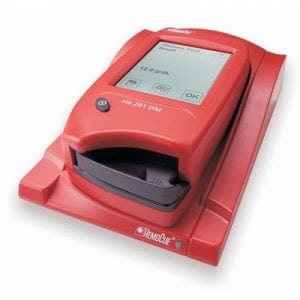
Agriculture
February 15, 2024
Implemented by
HemoCue
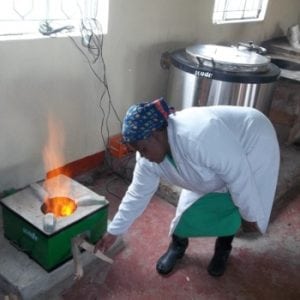
Agriculture
November 30, 2024
Implemented by
Sustainable Community Development Services (SCODE)

Agriculture
February 5, 2024
Implemented by
Appasamy Associates
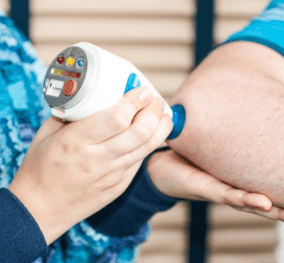
Agriculture
February 15, 2024
Implemented by
Rubitection

Agriculture
January 17, 2024
Implemented by
Technorbital

Agriculture
December 27, 2023
Implemented by
René Núñez Suárez
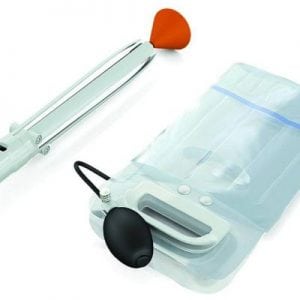
Agriculture
September 26, 2024
Implemented by
Jorge Odón
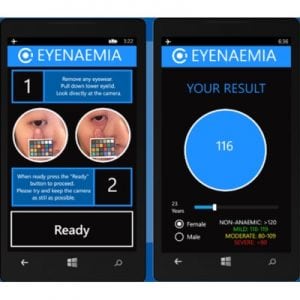
Agriculture
June 6, 2024
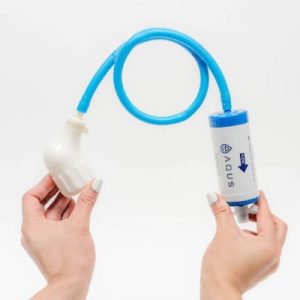
Agriculture
December 27, 2023
Implemented by
Aqus
Have thoughts on how we can improve?
Give Us Feedback
I’m very pleased to see a totally open-source platform for medical database management and customisation. Although the actual features and capabilities of the platform are hard to assess without access to a live version or domain knowledge, the presence of an active and engaged community of open-source developers and the participation and endorsement of a number of top academic and non-governmental institutions is quite encouraging.
The interface seems intuitive and easy to use. The provision of an API should make migration of data from existing datastores or integration relatively easy. OpenMRS has been used by a number of high profile organisations such as Save the Children and in diverse and challenging circumstances eg. West African Ebola outbreak
Of concern is that the fact that the tests in the GitHub repository appear to not be well developed.
There are a great number of academic publications describing the OpenMRS platform, it’s development and deployment. These include surveys of users and their experiences. These date back 10 years providing a sizeable evidence base.
On closer inspection, it seems that there is a demo instance so that users can test the platform interface.
On closer inspection, it seems that there is a demo instance so that users can test the platform interface.
http://openmrs.org/demo/
The wording on ‘Health Target’ where it refers to ‘increase access to local transport’ could be better replaced with simply ‘increasing range of mobility’ otherwise it could be mistaken as aiming to increase access to other local transport options.